My, has time flown by! In the past few months, I’ve had the chance to connect with each of the 31 bears here at Bifengxia – specifically, the panda mothers and their cubs. Like I said before, being the maternal care intern has its benefits. The more I watch mothers and cubs interact with each other, the more interesting behaviors I start to see – and it’s a big step in understanding the species in hopes of a better future.
One peculiar occurrence at the panda base I have noticed is the use of fostering for rejected – and otherwise hand-raised – panda cubs. Though it had been known to be happening for the past few years, nobody really knows the extent of its effects on panda behavior. Previous studies in the past had addressed behavioral differences in panda mothers and cubs part of twin litters. In short, it is often assumed that hand-raising a panda cub deprives it of the indispensable care that only a mother could provide. This is where fostering comes in handy.
This year in particular, cubs from Qian Qian, Xi Nier (a Hetaoping bear), and Yao Man all made switches to more experienced mothers. Qian Qian’s two cubs had been rejected, while the other two had been having difficulty getting the proper care from their original mothers. So, who’s raising these cubs? In addition to each already raising one of their own, mothers Ying Hua, Xi Xi, and Fei Fei have also started to raise others in need. This scenario presents some unique and pertinent data to our already-ongoing studies on maternal care, so I have decided to look closely at some initial differences – if there are any – in the raising techniques of these special bears.
Fei Fei:
Having successfully raised many of her own offspring in the past, Fei Fei represents most of what you would want in a mother. She’s caring, protective, and smart. That being said, she is also very wary of visitors, and knows just how to react to possibly detrimental situations. Showing great maternal behaviors towards both cubs, she often holds her cub close and shies away from onlookers and loud noises alike. Spending time with her cubs is also paramount in good maternal behavior, which is something she has no qualms about. This is a bit different from other experienced mothers, who seem to be rather laissez-faire in raising cubs, but come through when they are needed most.
Xi Xi:
Different in her maternal methods, Xi Xi is also a proven successful mother of fostered cubs. This year, she is raising both her own and Qian Qian 1 – and much to our delight, with great success! Though she does not seem to spend much time in close contact with either of her rambunctious walking balls of fur, she is quite protective. In the times her cubs get taken away for a quick bowl of milk – a common routine for 4-5 month old cubs being simultaneously raised by a mother panda – she often calls out for them to be returned. It’s something that really describes her nature as an intensely active bear. In addition to her calling, a considerable amount of cub interaction goes into her maternal strategy. Playing with cubs in order to further stimulate their growth is something she engages in often. It too is different from most other mothers here.
Ying Hua:
I keep designating everyone here as the calmest panda at Bifengxia, but Ying Hua honestly has got to take the cake. Raising individual foster cubs – Qian Qian 2 and Xi Nier 2 – for a full two months before her pen became a full house, Ying Hua has had some additional one-on-one time with her three cubs. Luckily, I was there to witness just exactly what had been going on. On initial inspection, there does not seem to be a preference to any one cub. Though she may be the most lax mother of all, she spends her due diligence in interacting with and grooming each and every cub. Most importantly, the cubs are healthy and active because of this – and extremely adorable!

Interacting with your cub is essential to developing healthy behaviors. Xi Nier 2 and Ying Hua’s original cub play fight with each other as Qian Qian 2 is groomed by his adoptive mother
The fostering initiative at Bifengxia has seen some fantastic parenting and many rewarding outcomes. Just two years ago when this was all first implemented, there were only three cubs that needed rearing from another mother. The number is only four this year – thankfully – but it helps provide us with a better understanding of something so crucial such as maternal behavior for an endangered species.
Written by: Daniel Horton

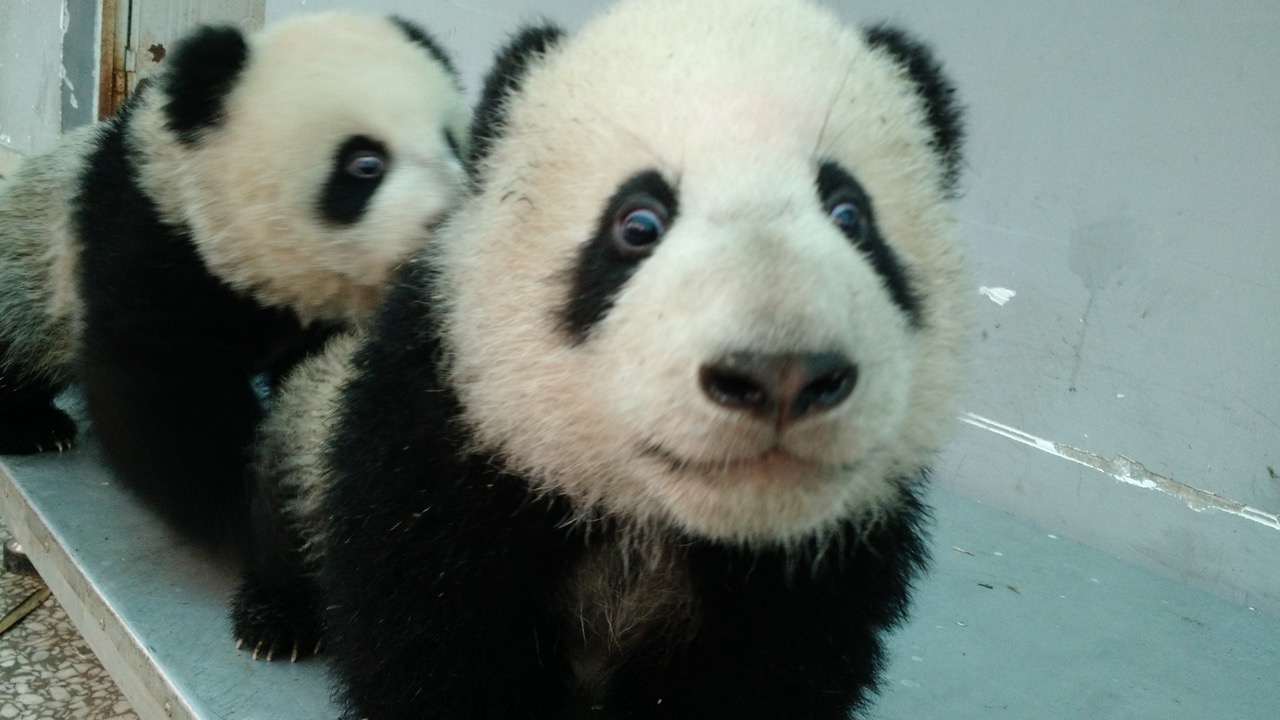
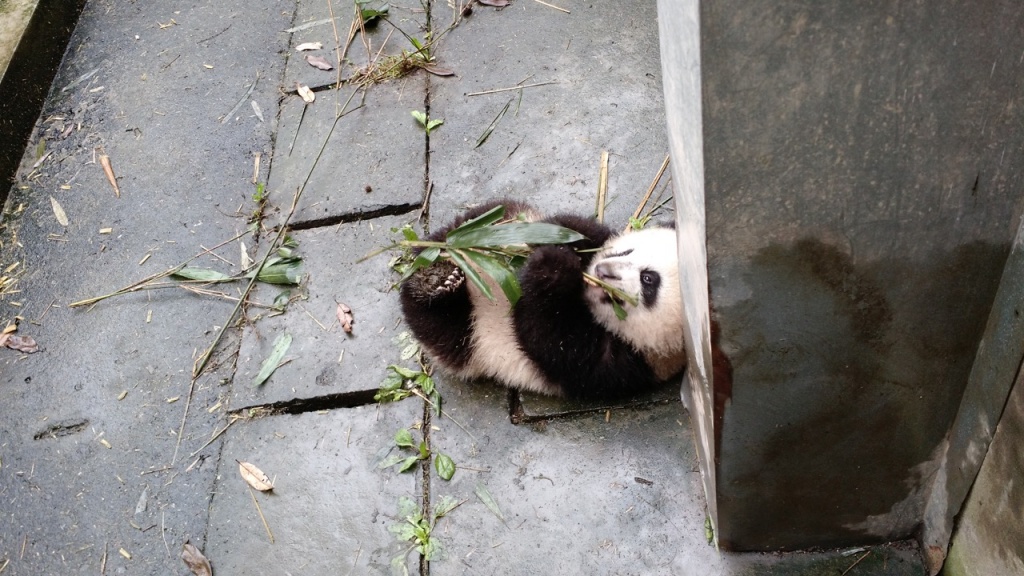
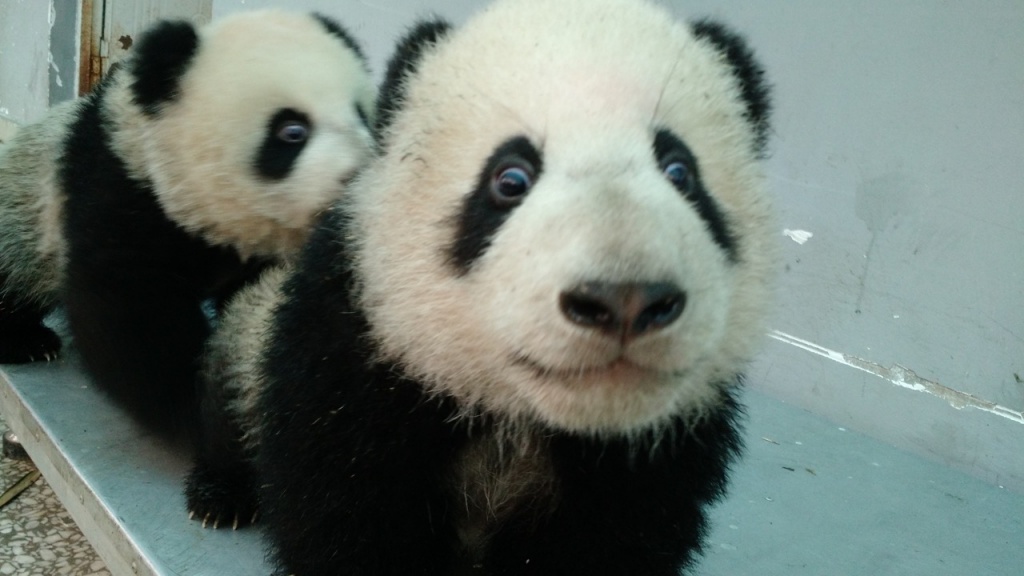
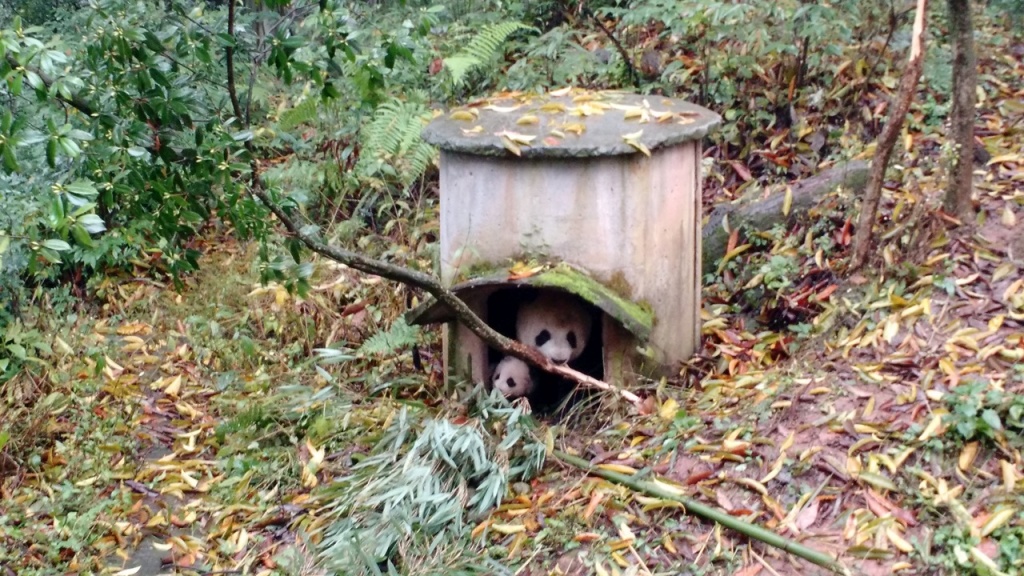
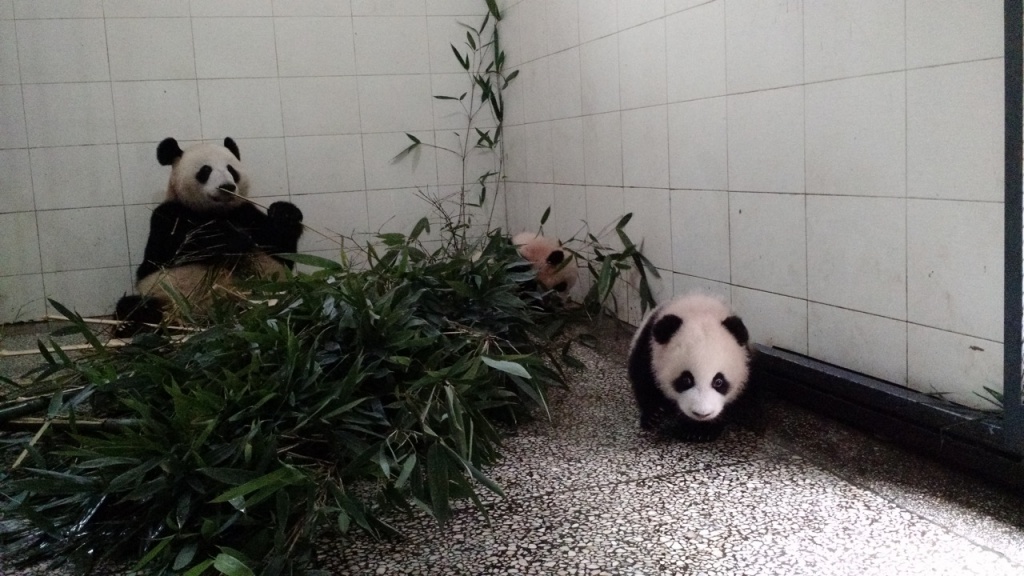
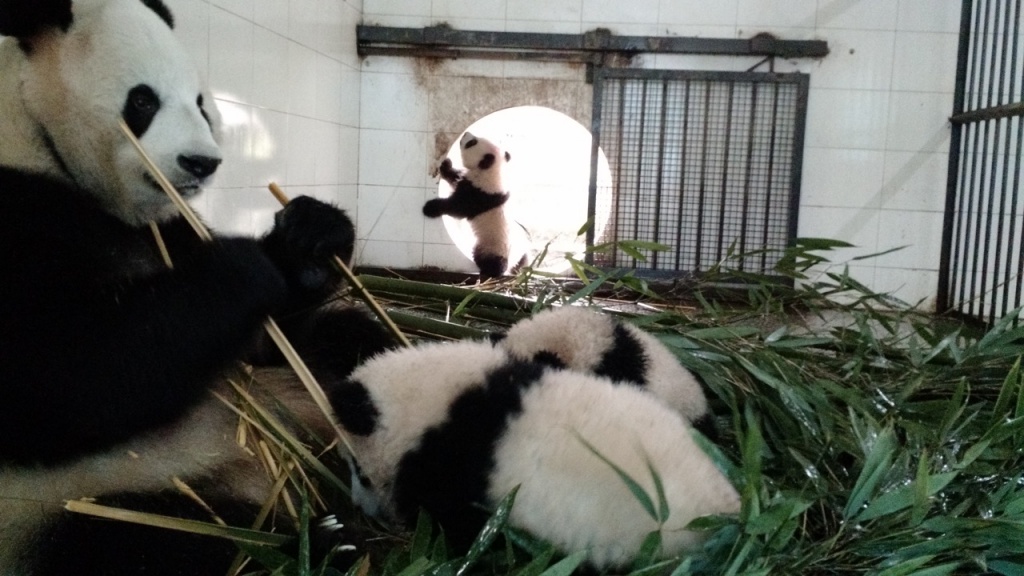
Great report, Daniel! Have you been able to visit with Zhen Zhen? I’m curious to know if they will eventually let her raise both cubs.
I am glad to read your account of BFX’s surrogate mother program, and thrilled to hear that Ying Hua has become such an excellent mother. Would you describe what you mean when you say that Qian Qian “rejected” her cubs. Did she simply refuse to feed them? What other behaviors did she display? Also, what kind of behavioral differences did you notice among the mothers with their own cubs versus their foster cubs? Did they tend to favor one over the other during nursing, or play with one more than the other? The reason I ask is that you used the word “initial” and I wondered whether the behavior changed after you watched after a longer period of time.